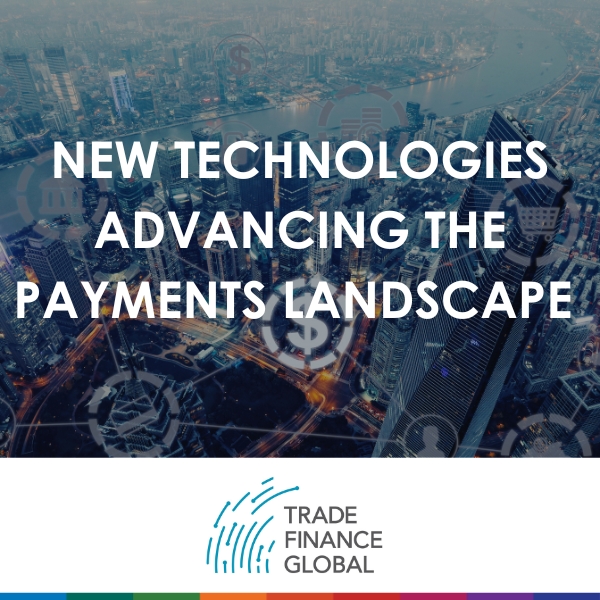
New technologies advancing the payments landscape
In today’s fast-paced digital era, the payments landscape is transforming rapidly.
Technological advancements and innovative solutions are revolutionising how we transact, paving the way for enhanced convenience, security, and efficiency.
To better understand how this can impact businesses and industries worldwide, it is important to explore the key developments and trends driving this modernisation, the existing digital barriers, and the importance of data protection in digital payments.
Why modernise your payments infrastructure?
Today, modern technological solutions are replacing traditional payment methods at an unprecedented rate.
By modernising payment infrastructure, businesses can unlock many benefits, including streamlined processes, reduced costs, and enhanced customer experiences.
Customers today expect convenient, fast, and secure payment options, and businesses that fail to meet these expectations risk losing customers to competitors. Staying ahead of the curve is critical for businesses to attract and retain customers and stay competitive in an ever-changing marketplace.
Modern payments infrastructure integrating new technologies, such as artificial intelligence (AI) and blockchain, can enable businesses to automate processes, lowering costs by reducing the need for intermediaries, slashing transaction times, and preventing errors.
Perhaps most importantly, it can free up time and capacity for firms to focus on their core activities and drive further value and growth.
Embracing payment innovations enables businesses to adapt to evolving consumer preferences, meet customer demands for seamless transactions, and gain a competitive edge in the market.
What are the digital barriers to payments?
As we transition towards a digital payments landscape, several challenges must be addressed.
One significant barrier is the digital divide, where individuals and businesses with limited access to technology or digital literacy face difficulties adopting digital payment solutions. Since payments must inherently involve multiple parties, the transaction can only be as digitally-driven as the least digital of the parties involved.
When it comes to international transactions with a counterparty in remote regions, access to technology infrastructure, including something as simple as a stable internet connection or mobile networks, can become a challenge.
In regions such as this, cash will have long been the dominant payment method, which is likely to cause some individuals to be innately mistrustful of digital payment methods they do not understand.
Building trust in digital payment methods – and the technical skills to use them effectively – requires education campaigns to increase awareness of their benefits and security features.
Security concerns, including data breaches and fraud, are also a significant challenge that may hinder widespread adoption. Digital payment methods can be vulnerable to security breaches and fraudulent activity, leading to concerns about the privacy of personal and financial information.
These security concerns often lead to enhanced regulatory and compliance measures, the complexities of which can impede the rapid growth and adoption of innovative digital payment solutions.
Digital barriers to payments can be complex and varied, requiring a multi-pronged approach to overcome. Addressing them will require collaborative efforts among businesses, governments, and financial institutions to foster inclusivity, strengthen security measures, and establish standardised frameworks for interoperability and compliance.
Data protection in digital payments
With the increasing volume of digital transactions, data protection has become a paramount concern, and both consumers and businesses must have confidence that their sensitive information is safe throughout the payment process.
Digital payments often include personal and financial data, such as credit card numbers, bank account information, and personal identification details. If personal and financial data is compromised, it can erode consumer trust and confidence in the payment system and reduce usage and adoption.
For the businesses involved, data breaches and other security incidents can lead to significant reputational damage, leading to loss of customers and revenue.
Thankfully, the digital security industry is well-developed and continually evolving, and there are several approaches that firms can easily implement to help ensure their data is kept safe.
The most fundamental is simple encryption. Encryption protects data during transmission between payment systems, including payment gateways and processing networks, helping to prevent unauthorised access and ensuring that data is only accessible to authorised parties.
Tokenisation, a process that replaces sensitive payment information, such as credit card numbers, with unique tokens that have no inherent value, is also used to help prevent sensitive data from being exposed in the event of a security breach
Some other user-centric methods include two-factor authentication and education.
Two-factor authentication is a security measure that requires users to provide two forms of identification (such as a password and a one-time code sent to their verified mobile phone) before accessing payment systems while simply educating users on best practices for data protection, such as avoiding phishing scams and using strong passwords, can help to prevent breaches.
Many countries also have data protection regulations, such as the General Data Protection Regulation (GDPR) in the EU and the Payment Card Industry Data Security Standard (PCI DSS), which require companies to protect personal and financial data.
Compliance with these regulations helps to ensure that personal and financial data is handled securely and responsibly, while non-compliance can lead to hefty fines and legal penalties.
The future of payments
The future of payments is a landscape of continued innovation and disruption, likely to be shaped by technological advances, changing consumer behaviour, and regulatory developments.
Blockchain-based payments offer enhanced security and verifiability; Internet of Things (IoT) devices are being integrated into payment systems, enabling seamless and automated transactions; Artificial Intelligence (AI) and machine learning are revolutionising fraud detection and prevention in real-time.
Mobile payment technologies, such as mobile wallets and contactless payments, are rapidly gaining popularity due to their convenience and speed.
Biometric authentication methods, such as fingerprint or facial recognition, could replace traditional authentication methods, such as passwords or PINs, making payments more secure and convenient.
The rise of digital currencies, such as central bank digital currencies (CBDCs), could challenge traditional payment systems and lead to new payment methods and systems.
Open banking initiatives drive collaboration between financial institutions and fintech companies, resulting in more integrated and customer-centric payment experiences.
As the boundaries between physical and digital payments blur, the future will witness further advancements and technology integration, transforming how we transact and interact with money.
Contents
Payments Hub
1 | Introduction to Payments
2 | Payment Infrastructure and Support
3 |Cross-Border Payments
4 | Clearing House
5 | Payment Methods & Processing
6 | New technologies advancing the payments landscape
7 | Access to Cash
8 | Regulations & Standards
Latest News
HSBC and Geidea launch digital payment platform Omni Collect in UAE
0 Comments
Finastra partners with LGT to provide instant payment services in Austria and Liechtenstein
0 Comments
US Consumer Financial Protection Bureau imposes credit card standards on BNPL sector
0 Comments
With more Canadians sending international payments than ever before, the need for ISO 20022 has never been greater
0 Comments
Visa B2B Connect and NetXD expand payments partnership
0 Comments
Standard Chartered completes first Euro transactions on Partior Platform
0 Comments
PODCAST| Diversifying investment portfolios with trade finance: Are we there yet?
0 Comments
Making an impact on Global Banking in 2024: ISO 20022, cross-border payments and AI
0 Comments
Standard Chartered joins Visa B2B Connect to enhance cross-border payments
0 Comments
Demystifying payment modernisation: Separating fact from fiction
0 Comments
Lloyds Bank completes its first WaveBL electronic Bill of Lading transaction
0 Comments
Kyriba launches AI features to enhance liquidity management solutions for CFOs
0 Comments
The impacts of ISO 20022 on transaction banking
0 Comments
Keeping pace with payments: Lessons learned from a dynamic landscape
0 Comments
VIDEO | The future prospects of the RTP® network, easing the ISO 20022 transition
0 Comments
 Australia
Australia Hong Kong
Hong Kong Japan
Japan Singapore
Singapore United Arab Emirates
United Arab Emirates United States
United States France
France Germany
Germany Ireland
Ireland Netherlands
Netherlands United Kingdom
United Kingdom












